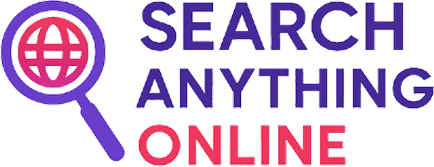
10 Essential Tools for Power Searching on the Web
In the digital age, the ability to efficiently search the web is a crucial skill for professionals, students, and anyone who relies on the internet for information. With the sheer volume of data available online, finding the right tools to enhance your search capabilities can save time and improve productivity. Here, we explore ten essential tools designed to elevate your power searching skills.
1. Google Advanced Search
Google’s Advanced Search is a powerful tool that allows users to refine search queries using specific parameters. By using filters such as language, region, file type, and date, users can narrow down their search results to find more relevant information.
2. Google Scholar
For academic research, Google Scholar is an indispensable resource. It provides access to scholarly articles, theses, books, and conference papers, making it easier to locate credible sources for research projects.
3. DuckDuckGo
DuckDuckGo prioritizes user privacy while providing a comprehensive search experience. It does not track your search history, and its clean interface makes it a popular alternative to other search engines.
4. Bing Visual Search
Bing Visual Search is a useful tool for finding information using images instead of text. Users can upload an image or use a URL, and Bing will return visually similar images or related information.
5. Wolfram Alpha
Wolfram Alpha is a computational knowledge engine. It is particularly useful for solving mathematical problems, generating data visualizations, and providing detailed information on a wide range of topics.
6. Yippy
Yippy is a deep web search engine that scours the invisible web, which is not indexed by conventional search engines. It is particularly useful for academic research and finding government or corporate data.
7. Internet Archive
The Internet Archive, also known as the Wayback Machine, allows users to view archived versions of web pages. It is an essential tool for historical research and tracking changes to websites over time.
8. SEOquake
SEOquake is a browser extension that provides SEO-related information about a website. It is useful for digital marketers and SEO professionals who need to analyze search engine rankings and optimize web content.
9. Evernote Web Clipper
Evernote Web Clipper is a tool for saving and organizing information found online. Users can clip articles, images, and PDFs directly to their Evernote account, making it easier to manage research materials.
10. Google Alerts
Google Alerts is an automated notification system that sends updates based on specified keywords. It is a great way to stay informed about new content in your areas of interest without having to perform manual searches regularly.
Conclusion
By leveraging these tools, anyone can enhance their web searching capabilities. Whether you are conducting academic research, optimizing your workflow, or simply exploring new topics, these tools provide the functionality required to find and manage information effectively. Experiment with these resources and discover which ones best meet your needs for power searching on the web.
Related Articles





